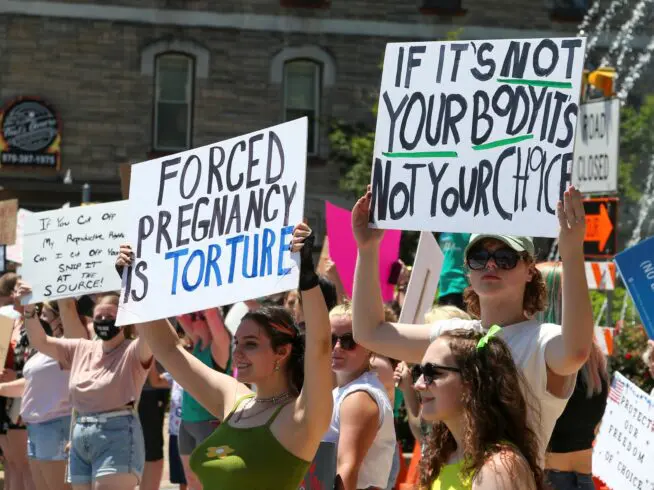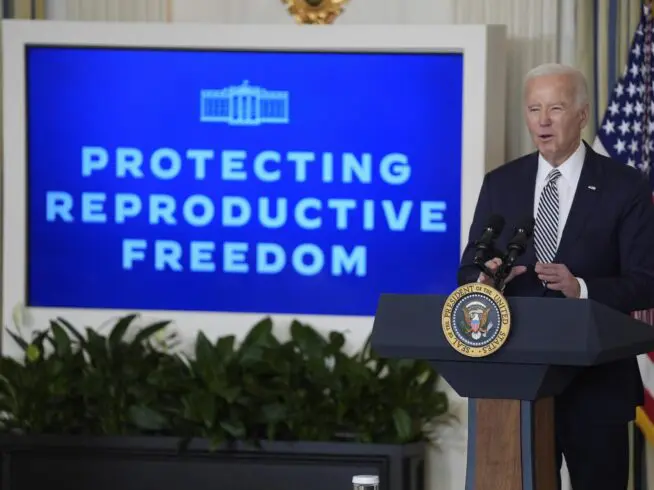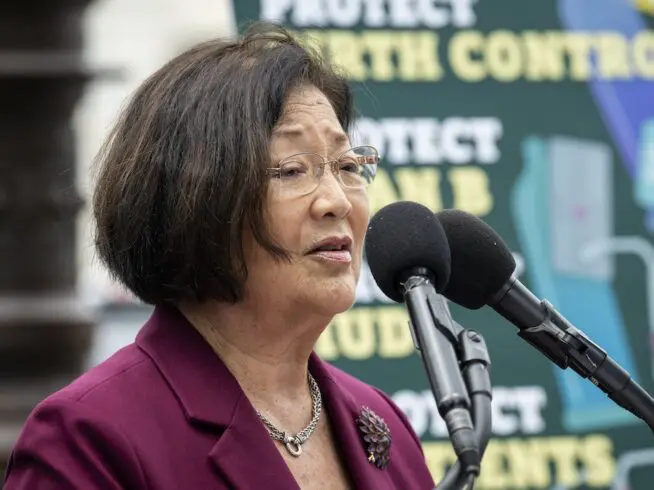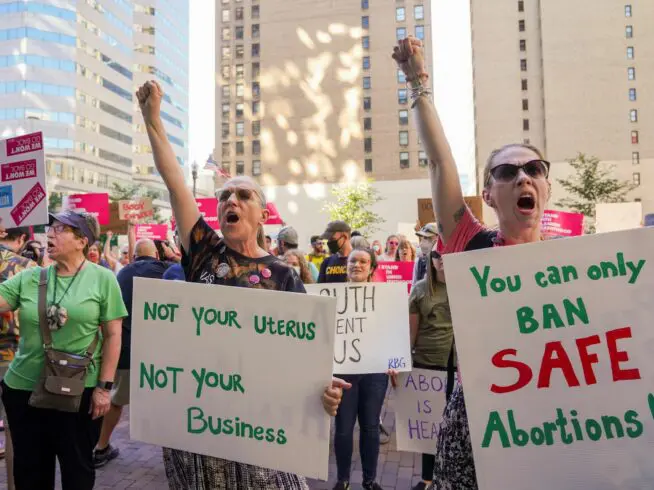Pennsylvania abortion clinics straining under influx of out-of-state patients
‘Throughout this fiscal year, there’s an estimated 74% increase in abortion patient volume,’ says Signe Espinoza, executive director of Planned Parenthood Pennsylvania Advocates.
There are only 18 freestanding abortion care providers serving Pennsylvania, down from 145 before the U.S. Supreme Court overturned Roe v. Wade in June 2022. Pennsylvania Department of Health reports that in 2021, 33,206 patients obtained abortion care in the state.
Abortion rights advocates and lawmakers in Pennsylvania are working hard to remove the existing barriers to care as more patients from abortion-restrictive states travel to the state seeking care.
“Throughout this fiscal year, there’s an estimated 74% increase in abortion patient volume, and that’s because as states continue to ban abortion, folks are looking for health care elsewhere, and they’re turning to states like Pennsylvania,” Signe Espinoza, executive director of Planned Parenthood Pennsylvania Advocates, tells the American Independent Foundation.
Although abortion care is legal in Pennsylvania through the 23rd week of pregnancy, the state’s Abortion Control Act requires a patient to have state-mandated counseling that Planned Parenthood says “includes information designed to discourage [a person] from having an abortion,” and to submit to a 24-hour waiting period before having the procedure. Parental consent is required for a minor to obtain abortion care.
“I think a lot of folks would refer to Pennsylvania as some kind of safe haven state where abortion was not as restricted. But that’s actually not the case,” Espinoza says. “There are a lot of restrictions on abortion care in Pennsylvania.”
Such restrictions include limits on insurance coverage of the costs of abortion care. Pregnant patients who have Medicaid and plans purchased through the Affordable Care Act can only have their abortion care covered if their life is in danger, or in the case of rape or incest.
According to the American Civil Liberties Union, the Hyde Amendment banned the use of federal funds for abortion care when Congress passed the fiscal 1977 Medicaid appropriation. The Amendment only allows for abortion care in cases where the pregnant person’s life is in danger.
When the Affordable Care Act was passed in 2010, several states began restricting abortion care for those with private coverage obtained through the ACA, according to the Guttmacher Institute. Other states have elected to use their own Medicaid funding to cover the cost of abortion care for residents.
In April, Pennsylvania state Rep. Leanne Krueger introduced H.B. 1140, a bill that would amend the Insurance Company Law of 1921, which allows “employers to be exempt from Affordable Care Act mandates to provide birth control to employees if they object due to religious or moral values,” a summary of the bill reads.
“We’ve been in constant defense when it comes to abortion in Pennsylvania. And at the same time, when we’re talking about abortion gaps, there’s also other sexual reproductive health care gaps. We’re living in a Pennsylvania where there are contraceptive deserts, where a lot of women are living in areas where there’s no provider with a full range of methods for birth control,” Espinoza says.
Espinoza adds that lawmakers in the state are also working on a bill to increase access to abortion care by allowing more clinicians to provide it. Under current Pennsylvania law, only licensed physicians can prescribe or perform abortion care.
“This isn’t the case for many other states. This isn’t the case for our neighboring state, New Jersey. We know midwives and nurse practitioners that are duly certified, and they can’t provide abortions in Pennsylvania, but when they cross the bridge to go to New Jersey, they’re able to do that,” Espinoza says. “There’s no other reason why this doctor-only provision exists other than because abortion is stigmatized. It’s outdated, unnecessary.”
In July, Democratic state Sens. Amanda M. Cappelletti and Judith L. Schwank announced they would be introducing a package of bills intended to “protect individuals seeking and providing reproductive health services in the Commonwealth.”
“These measures will ensure that everybody within our borders is protected in their right to access an abortion and the doctors and nurses who provide it are freely able to provide health care,” Cappelletti and Schwank said in an official memorandum.
According to a Franklin & Marshall College poll taken in July 2023, 52% of registered voters in Pennsylvania said abortion should be legal under certain circumstances, and 37% felt it should be legal under any circumstance.
“Ultimately, this is everybody’s fight,” Espinoza said. “This is a fight about having the control over your own body, and I think everybody should be on board with that.”
Published with permission of The American Independent Foundation.




